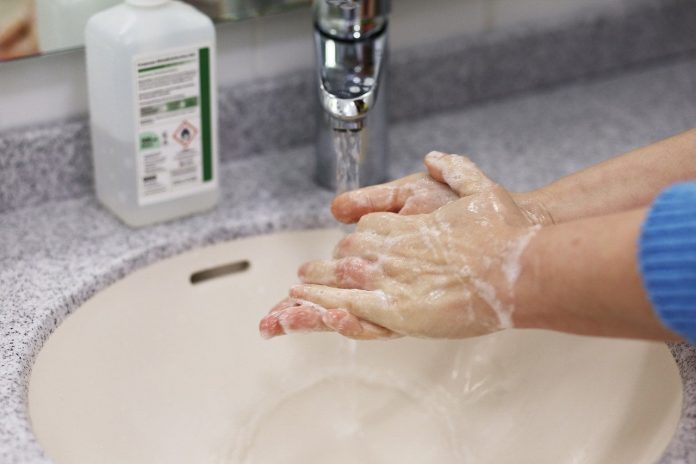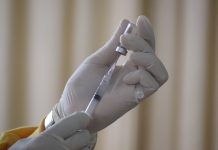
Soaps that claim to be antimicrobial or antibacterial are no better than ordinary soaps at cleaning your hands and they are feeding the growing superbug problem and should be banned, says Monash University Professor Trevor Lithgow.
He says ordinary soap and water is an effective hand hygiene solution and reduces unnecessary exposure to chemicals that are feeding antimicrobial resistance (AMR) and creating superbugs.
Since Covid-19, the simple act of hand-washing has been elevated beyond the mundane into a public health headline and potentially life-saving act.
People wash their hands more now. Soaps and sanitisers are in demand, and also ubiquitous – in handbags, backpacks, at pub and shop doors.
This is undeniably a good thing. But Professor Lithgow, who works on superbugs that are resistant to medicines, sees a downside.
Demand for household soaps with antimicrobial additives has spiked during the pandemic, with consumers duped by the false premise that they provide superior protection against germs and disease.
Superbugs – bacteria that are immune to antibiotics and other pharmaceuticals – are predicted to kill 10 million people a year by 2050, including tens of thousands of Australians.
He says while overuse of antibiotics is also driving superbug evolution, antimicrobial soaps and detergents are a contributing factor and should be banned.
In 2016 the United States, the Food and Drug Administration (FDA) banned 19 chemicals from soaps, including the two most prominent – triclosan and triclocarban. The reason the FDA gave was that the added chemicals did nothing.
Professor Lithgow says Australia should follow suit.
Not only do they do nothing, they’re bad for the human environment and healthcare. The science is unequivocal on that.

“It’s a very simple public health message: when it comes to hand hygiene, ordinary soaps are 100 per cent effective,” Professor Lithgow says.
“To suggest otherwise is a marketing ploy used by soaps manufacturers that plays on human fear.
“Not only are the antimicrobial chemicals added into some soaps unnecessary, but they are also bad for public health. Every time we use antimicrobial compounds that are designed to kill bacteria, the bacteria respond by getting tougher and more aggressive, ultimately becoming resistant to conventional therapies like antibiotics.”
Antimicrobial additives are also used in household laundry and cleaning products, where they upset the balance of good bacteria in the home and are routinely washed down the sink and into waterways.
Choice, the consumer group, says triclosan and triclocarban not only contribute to antibiotic resistance they disrupt hormones. They can still be found in a number of personal care products, from soaps to cosmetics, toothpaste and even cutting boards and cleaning cloths.
Supermarket giants Woolworths and Aldi and manufacturers Reckitt Benkiser and Colgate-Palmolive have announced they intend to phase out soap products containing certain antibacterial chemicals over the next 12 months.
Consumers do not need to wait for government regulation banning antimicrobials in household soaps, they can make a real impact through the choices they make at the supermarket, Professor Lithgow says.
“This is a low-cost solution to a very big problem.”
Limiting the number of deaths caused by AMR infections requires sustainable solutions: from how we wash our hands, to how we approach our GPs for antibiotics.
“We are not suggesting for a minute that people should wash their hands less. We have all learned great lessons in hand hygiene from the Covid pandemic. If it is your only option, using antibacterial soap is better than no soap at all.”
The best approach is washing thoroughly with plain soap and running water. If there’s no soap and water available, a hand sanitiser with at least 60 per cent alcohol will also the job.
“The message is, soaps are good. Keep using them. Keep washing your hands. But antibacterial additives in soap are not good. You don’t need them, so don’t buy the soaps that include them. It’s in your hands,” says Professor Lithgow.


































